So, wow, here we are.
Dragon’s Trail just crossed the ten-thousand sales mark.
We’ve known that this was coming. We were at ninety-six and change earlier this summer, and we started talking with people about sales numbers, and the Big Ten Thousand kept coming up; the unattainable, pie-in-the-sky number for an indie author. Beyond the Fifty Reviews That Change Your Amazon Algorithm (they don’t, as far as I can tell) and the vaunted First Hundred Sales, far off in the mists where dragons soar, lies Ten Thousand Sales. A couple of weeks ago we figured we had crossed it, and we just ran our numbers for the month.
Ten. Goddamned. Thousand.
It’s been two years since we launched Dragon’s Trail. I want to talk a little bit about how this happened, because everyone’s asking me how this happened.
First off, we had a plan. Kind of.
We had a plan to create an indie fantasy novel that was competitive with anything that a trade publisher would put out. More to the point, I didn’t want it to be competitive; I wanted to kick their asses, because the more I thought about this whole thing, the more pissed I became. The pivotal moment in my writing journey happened about twelve years ago, when a trade publisher held a version of Dragon’s Trail for over six months, then asked me for a series treatment, then held it all without returning my calls for well over another year. Nearly two years, not counting the six months or of querying, partial and synopsis, etc. During all this time, I couldn’t submit to any other publishers or agents. In the end, after nearly two years, they passed with a form letter. This was after about fifteen years of trying to get a trade publisher or agent to take me on, with a slew of different books all generating hundreds of rejections between them. (There’s a reason they call it submission. Assume the position.)
This wasn’t as bad as it looked; a friend pointed out that, with that early version of Dragon’s Trail, they tipped their hand. They wouldn’t have held the book for that long hemming and hawing about it unless I had something that was competitive. I had burned out by this point, and quit writing, or at least, quit submitting. I still wrote for myself for a while longer, and finally shelved the whole thing and quit writing fiction. Six years ago, I revisited the manuscript: I did a total rewrite from a blank page and sent it to a professional editor; bought a professional cover; and brought in my wife, who’s a business development consultant, to give me pointers on the website design, marketing, branding, artwork, and so forth. I didn’t launch an indie novel; I launched an indie publishing company. There’s a massive difference. I didn’t want to jump into the system and make do. I wanted to compete with the big kids. And I wanted to kick their asses, because kicking ass is my default setting.
Here’s where I was stupid, though: I let myself get talked out of the initial plan, which included wide distribution, competitive “curated” promotions, paper and ink copies—and hell, I might have been talked out of the editor and the cover and the website design if I hadn’t already done it—by well-meaning indie authors who assured me that it was career suicide to invest in and produce a professional-caliber novel, because, they assured me, indie authors don’t need to do this. I was told that I needed to minimize overhead, and write the second book as fast as possible. Within 30 days, if I could. I was assured I should barely revise, much less edit. Spellcheck was enough; Grammarly was great if I wanted to spend the money.
“This is what works.”
“Nothing else works.”
This works—there are repeatable, provable models—but it doesn’t work for what I write, and this was the disconnect. This approach works if you’re writing, say, erotica with a specific kink, or themed cozies, or formulaic romance with a tightly focused audience in mind. There is definitely a set of circumstances under which their advice makes sense, and I in no way mean to denigrate the authors who can put nose to grindstone and produce consistent, tightly formulated books that sell massively; Mills and Boon come to mind. It’s a specific talent that I don’t have. The key here is that this approach seems to work best when targeting a reader who is expecting a completely different experience than, say, an epic fantasy or lit-fic reader.
Me, I write epic fantasy spy thrillers, with complex plots, and allegory, and subtext, and . . . well, yeah. I write complicated books. At least, they’re complicated for me, but then, I’ve taken a lot of blows to the head. Point being, I can’t write a book in 30 fucking days. (I can’t even write a book in 30 non-fucking, monastic days.) But I put Dragon’s Trail up on Kindle Unlimited, the way I was told, and I bought into cheap promotions for twenty or thirty bucks a pop and the occasional Fiverr gig, the way I was told, and sure, my book got Tweeted out once in a while and . . . well, yeah. Hardly anything happened. My debut novel did exactly what everyone else’s first book does, which is almost nothing. A few sales a week. A few reads on KU every week.
I did, however, have the foresight to not take the fifty or hundred bucks a month I was making and blow it all on beer. I took my wife’s advice—she’s much more business savvy than I am—and put every penny the book made back into promotion. Every month, it made a little more, if not by much. I kept a record of which promotions worked. I even found one that consistently made my money back, if not by much.
After six months, Dragon’s Trail wasn’t really going anyplace, but, as it happened, I was. Specifically, I was headed out to a fantasy convention, where I’d be demonstrating swordsmanship and hand to hand combat, lecturing on military strategy, and participating in panels about a few other things I understand and enjoy, mostly having to do with kicking ass in one manner or another. (If you’re sensing an ass-kicking theme, it’s because I definitely hold to an ass-kicking theme.)
I had another ace up my sleeve, here, because I’d spoken and demonstrated at this same convention the previous year, and I’d had dozens of people corner me after panels and ask me if I was ever going to write a book. At the time, I’d written Dragon’s Trail, but I didn’t tell anyone because I wasn’t sure what I was going to do with it.
So when the convention came around again, I made a mental tally of how many people had asked about a book, and I figured I might sell to a third of them, and I took that month’s promo money and gambled: I bought two boxes of paperbacks from CreateSpace, and gave them to a rep from a local bookstore to consign for me at the convention.
It paid off. Hugely. I sold every book I’d brought, and the bookstore ended up taking orders. They still stock Dragon’s Trail to this day. I also sold enough ebooks to propel Dragon’s Trail into the Top 20 in Military Fantasy on Kindle, where it found its people and continued to explode.
We now knew who the readers were for this kind of book, and how to access them. My wife helped me adjust the marketing and branding for the series to keep that readership interested—not “Write to Market” as much as “Market to Market”—and over the next several months, her brilliant stewardship put Dragon’s Trail through the goalposts.
So really, most of this has happened in the past eighteen months. Ten thousand sales. Mainstream critical acclaim. Campbell Award eligibility. SFWA. College lectures. Radio interviews. Fan mail. Readers messaging me to ask if the world in the book is real.
So, if you want to know my secret, it came down to being a selective type of hypercompetitive, self-assured, bullheaded asshole—although a smiling bullheaded asshole, and with a firm handshake—and not giving up on something I believed in.
Additionally, I have made you two lists. Maybe they’ll help you. They helped me.
Things that worked for me:
- Craft. There is no substitute for having an understanding of what words do and why. The basic mechanical process of making words do what you want them to do and say what you want them to say is the most important thing in all of this. You are a writer, and writing comes with time, and study, and practice. It comes with many books written that never see the light of day, and deservedly so. Time spent improving your writing will generate an eventual monetary advantage.
- A professional cover. Not a Fiverr cover. Not a Poser cover. At least throw down for a quality premade, and at least $100 unless you find something on major sale. Ideally, you want to find a cover artist for household name authors who’s going out of business. Failing that, $100 is the minimum you should consider. $300 is better. $500 will get you in the ballpark where you can bank on landing curated promotions.
- Professional editing; i.e., dev and line editing. (You thought the cover was expensive? HA.)
- A separate copyeditor from your dev/line editor(s). By the time she’s done a line pass, she’s too close to the work.
- A separate proofreader from your editor; ideally, two. See above; you want copy and proof with fresh eyes.
- Beta readers who know your genre and don’t necessarily like you. In fact, it’s better if they think you’re full of shit, because that’s what every reader who doesn’t know you is going to think until you change their mind.
- Editing again after you change anything. And getting that shit proofread. Again.
- Curated promotions; i.e., any promotion that requires you be selected through a competitive process.
- Press releases.
- Radio interviews.
- In-person author events: cons, lectures, signings, meet-and-greets. I once did a podcast in a bar and sold every book I’d brought in the trunk of my car. I’ve been known to drop in on game nights at comic book shops with pizza and a few books, shake hands, maybe even roll up a character.
- Mainstream critical reviews. Publishers Weekly, San Francisco Chronicle, major websites in your genre that review and interview major-league writers. If you think your writing isn’t ready to get hacked apart by the people who rip apart the greatest writers in the world when they drop the ball, then don’t fucking publish yet. Start another book. If you think that one isn’t ready, write another one. You’ll know when you’re ready. It took me 30 years.
- Writing a lot. This goes back to craft, and it goes back to what I said just now about knowing when you’re ready. Like I said, it took me 30 years from starting my first novel back in high school before I knew I had a winner that had me pulling at my leash to get it out into the world; my “debut novel” was in reality my twelfth completed novel. Counting rewrites, it might have been my thirtieth, because I do full, blank-page rewrites each time; I don’t do fiddly little edits. Writing a book is not enough writing to be able to write a good book.
- Creating your own sub-genre. Do something no one has done before. Fuck vampires. Fuck lost princes. Fuck anyone who “comes of age in a world of magic and wonder.” You’re shouting into a riot, so save your voice. My friend Tiana Warner writes lesbian-themed mermaid hard SF military action-adventure for young adults. That’s the kind of angle you need to be finding. Why? Because she’s the only one in the world writing it. She invented it, and she loves it, and she even sells T-shirts about it. She also writes brilliantly and you should read her stuff.
- Trusting that no one, no matter how successful, has any idea what works and we’re all making it up—this includes me—so your chances are better if you do your own thing. The plural of anecdote is not data.
- Being you. You are your brand and your style. You’re not selling your book; you’re selling YOU. Like it or not, but you’d better learn to like it. Also, having a shtick works wonders.
- Being cool to everyone. Yes, everyone. Quietly write off nonbelievers, but keep smiling. Being cool to people gives them hope.
- Remembering people’s names. This is tied to the thing immediately above about being cool to everyone. This goes so unbelievably far.
- Reading voraciously in your genre. Not only does it make you a better writer, but when your book explodes, you will have little warning, and you will immediately find yourself surrounded by people you should recognize. Be able to talk to them about their life’s work.
- Toughness. You can have all the talent in the world, but talent is nothing without toughness. It takes psychological toughness to put up with the unbelievable load of insufferable bullshit that you have to endure as an author and still have something worth saying when you sit down to the keyboard. It takes physical toughness to stay at the keyboard when you’re exhausted and you’ve had a rotten day. It takes emotional toughness to read angry emails from readers who think the book “would of (sic) been so much better if only . . .” without turning to drugs or booze or donuts or any of a hundred other destructive coping mechanisms. It takes spiritual toughness to swat away bad reviews, and rejections, and conversations with your agent that involve the word “frankly.” Toughness keeps the wolves on the other side of the hill instead of at your door.
- Loving every single part of this. The day you cease visualizing Sisyphus as happy, you start down the road to either quitting writing or putting a gun in your mouth.
- Finding people who like what you do. Don’t write to market. Write what you write; market to the market.
Things that DIDN’T work for me:
- Writing a book every 30 days to “beat the Amazon algorithm.” I’m writing a book every two years and still kicking the algorithm’s nuts through the roof of its mouth. Thirty-day cliff, my ass. Also, there are many other platforms out there that don’t use Amazon’s algorithm, and the money they pay you spends just the same as Amazon’s money.
- Publishing the first draft of anything. (To be fair, I never tried this. But I’ve seen it done, and I’ve never once seen it work.)
- Grammarly as a substitute for an editor.
- Any review you have to pay for.
- Kindle Unlimited, unless you have a large backlist of books more or less identical to the one you’re about to release.
- Non-curated promotions. If anyone can buy a slot in a promotion, there’s nothing important or exciting about any of the books in it. You don’t want to be associated with unexciting writers.
- Selling at 99 cents, outside of occasional price drops for promotions. There’s an expectation of value at the higher price points, and those are the people you want to woo. Write and produce a book worthy of $5.99, or hell, $9.99. And then show some balls: set your price and stick with it. When people expect value and you give it to them, they become repeat customers.
- Competing with other indie authors. At our price points, no one is stealing any readers from anyone else. Get this idea out of your head.
- 20 reviews on Amazon “changing the algorithm.” Or 50 reviews on Amazon. Or 100 reviews on Amazon. None of it matters. I now have 110 Amazon reviews, and nothing has changed. Every day, it’s me out there with a machete and a rope, clearing a path and leading my sales up a hill that they seem to want no part of.
- Breaking a hundred sales. Or a thousand sales. Or ten thousand sales. There is no magic number. Every day is just as hard as the one before. There’s no auto-pilot. There’s not even a cruise control. This is your life now; you’re white-knuckling the wheel the whole ride, and as soon as you take your eyes off the road, you will crash. Cope.
- Whatever large numbers of authors are doing, about 99% of the time. If a bunch of people are making money on it already, you missed the boat.
This is by no means a comprehensive or definitive list; it’s just lessons learned that I can remember off the top of my head. Individual mileage may vary, and again: if you’re not doing what I’m doing, this may not work. This is what worked for me.
Anyway, that’s all the news that’s fit to print from here. It’s been another hell of a year, and we’re three weeks out from the release of The New Magic. Grab something and hang on.
— JM


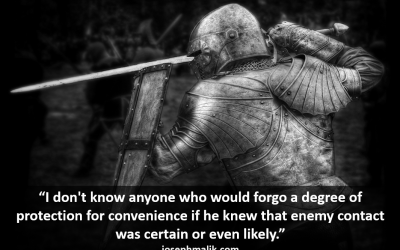
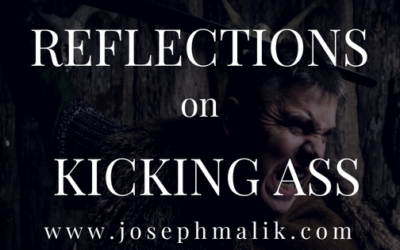
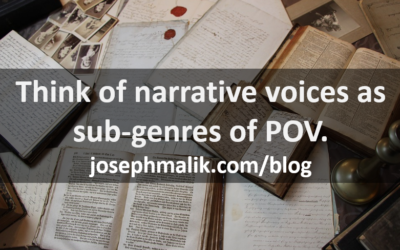
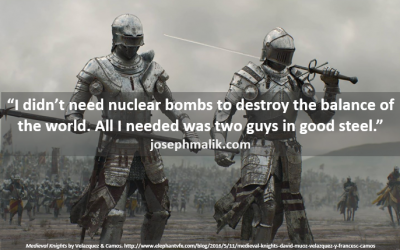
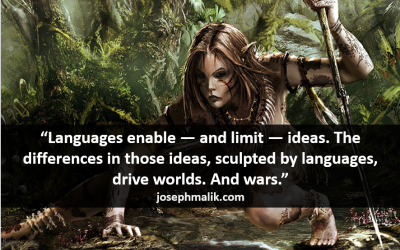
OMG I’m SO excited as I read this. Thanks for sharing. I’m just about to launch the book of my career (so far) and after helping dozens of books published for other Indie’s out there in NF, I’m struggling to keep the faith. I know there’s still a lot of hills to climb and machetes needing to be sharpened. This just at the perfect time, helps me to continue to fine tune my own planning only weeks out from my launch and to keep holding on by my fingernails every single day!
I’m embarressed to admit that I stumbled across Dragon’s Trail via BookBub last June – for a measly buck. You couldn’t possibly have marketed to a grandmother of two, albeit lifelong sci-fi & fantasy reader. In any case, the hook is in… line & sinker too.
Am reading DT for a second time to become ‘fit’ for The New Magic (& Outworlders installments to come), which will be consumed as soon as its release. No BS, Joe: thank you for all the years you’ve put into your craft. There’s no one out there doing what you do, certainly not how you do it.
Yes! So much YES!
My journey had been different, but the lessons learnt are pretty much the same. I’ve either learnt them the hard way and implemented them, or learnt the the hard way and am about to implement them.
Thank you for putting it down so succinctly. Hope to end up together on the stage at WorldCon one day 🙂
Now I’m off to read Dragon’s Trail.
Cheers, Assaph
Thanks for taking the time to write this great post. I’m not one of your “target” audience, but I’m intrigued enough to give you that 10,001 sales.
Great post!!! I loved that you knew you had a good book and then targeted your audience. May you reach a 100,000 readers!!!
Congratulations, Joe. That’s a nice milestone. I hope you keep selling beyond your wildest dreams. 🙂
I am going to store this and read it again and again and again. I write beautiful historical fantasy that has a hard time finding its audience cause I do not write “throw it on the Internet and see if it sticks” 30 day crap. I go the pro route and get out a book a year with great effort. Thanks. And keep going. My dragons salute your dragons…
I heard you on a podcast saying that you had no intention of selling your books at a lower price point, which you also reiterate here, but I see that you’ve just now tweeted that The New Magic is on Amazon for .99 cents.
What’s changed?
Thanks for the question, Max. I believe what I said (and if I didn’t say it, apologies; I certainly meant to, and I hope to clear this up, now) was that outside of the occasional promotion, I won’t sell at $0.99. The question, as I understood it, was will I drop the price of Dragon’s Trail to be a loss-leader once the series is out, and I have no intention of doing that.
The price drop to $0.99 was for a one-day promotion through a highly competitive, curated promotion service, but it takes some retailers up to 72 hours to change the prices, and Amazon always price-matches the lowest price of its competitors. Plus, they like to keep the price low for a day or more after their competitors raise theirs again. So, on Amazon, it was at $0.99 for nearly a week. I figured I might as well tell my Twitter followers.
There are really no wide promotion opportunities that don’t involve drastic price cuts, so I’ll continue to drop the prices for occasional promotions. It’s the nature of the beast.
I have no intention of ever going permafree, or permanently dropping the price of my books to $0.99. That’s what I had intended to say in the podcast. Great catch, and sorry for any confusion.
Got your book at 0.99. Loved it and will look for hard copy or Ebook of new one. Often read loss leaders and am disappointed to get what I paid for. I will be happy to pay fair retail value in future. Thank you for your skill and work.
I’ve just read this article and wanted to say thank you! It’s one of the best articles on the reality of indies. I’m newly published indie (April 1st) and had been warned of this 90 day cliff. But I believe in everything you’ve said and yes, I did make the investment in editing and a professional cover, and yes, it has paid off already. Who can write a book in 30 days..really?